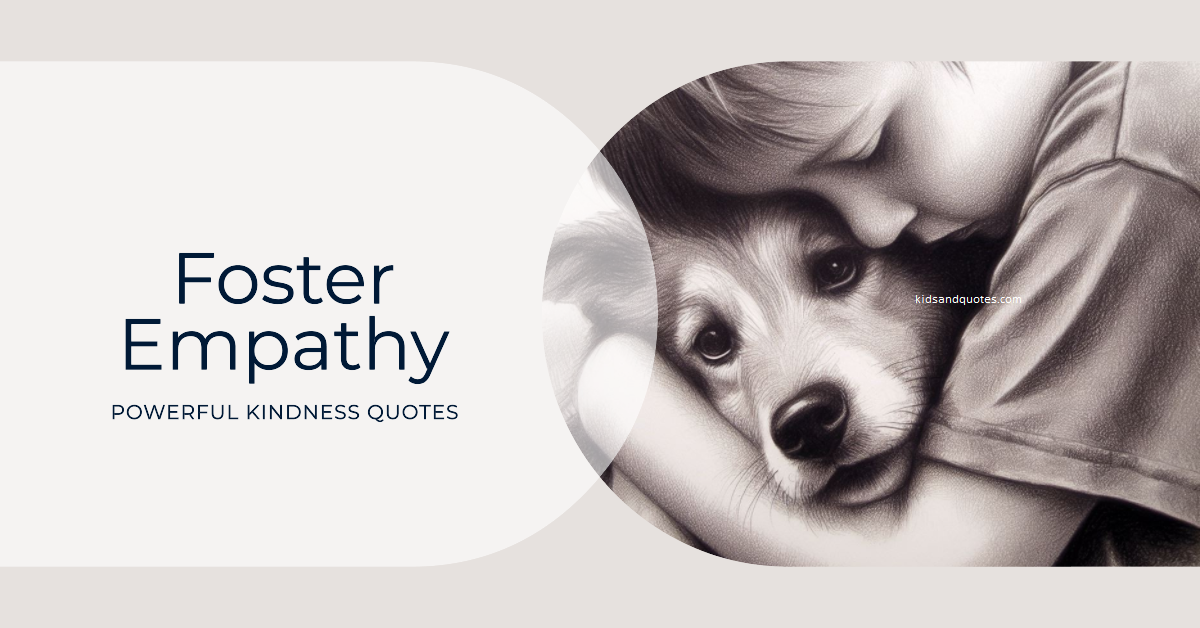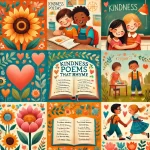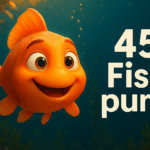Teaching empathy to kids is a vital aspect of their emotional development. It nurtures their ability to understand and share the feelings of others, promoting kindness and compassion. One powerful way to inspire empathy in children is through the use of quotes about empathy and kindness. In this blog post, we have curated a collection of compelling ‘kindness quotes for kids’ that serve as valuable tools for teaching empathy.
Empathy is a skill that can be cultivated and strengthened in children. By introducing them to thoughtful words and perspectives, we can plant the seeds of empathy that will grow into a compassionate worldview. These quotes about empathy resonate with children, conveying important messages about the power of kindness and understanding.
Teaching empathy to kids not only benefits their individual growth but also fosters harmonious relationships and inclusive communities. Through empathy, children learn to value diversity, communicate effectively, and resolve conflicts peacefully.
In the following sections, let’s explore the significance of empathy, along with the benefits of teaching kindness, and present ten impactful kindness quotes for kids. Each quote will be accompanied by insights, practical applications, and strategies for nurturing empathy in children.
Let’s use the wisdom of these quotes to empower the next generation with compassion and understanding.
Shop these items (my favorites too) which help fostering empathy:
- Motivational Cards: 100 Inspirational, Kindness, Motivational and Quote Cards. Business Card Size – 2.5×3.5 inches (Pack of 100)
- Friendship Bracelet Making Kit
- Women’s Crewneck Sweatshirt, Long Sleeve with Kindness Quote – Hey there fellow teachers, let’s teach kindness in style
- Social Skills Board Games, Empathy & Manners
What’s empathy?
I gotta tell you, empathy? It’s what really makes us humans tick, you know? I mean, it’s that incredible knack we’ve got for feeling what someone else is feeling, and then sharing that feeling with them. And if you’re in the business of raising kind and caring kids, well, empathy is your golden ticket.
Think of empathy as a superpower for kids. It’s like this ability they have to sense what others are going through and then step into their shoes, you know, see the world from their angle. It’s like building this connection, this understanding, and it just makes the world a whole lot happier and more peaceful.
So, how do we help our little ones boost their empathy muscles? Well, we gotta get them into activities that rev up those empathy engines. Stories that take them to different situations, or games that have them stepping into all sorts of shoes. It’s all about helping them get better at understanding what others are going through.
But here’s the kicker, it’s not just about personal growth. Nope, it’s about building a society where folks help each other out, where we all lend a hand when someone’s in a jam. So, empathy in kids? It’s kind of a big deal for the world at large.
To really nurture kindness and that warm-and-fuzzy compassion, we’ve gotta give our kids some empathy lessons. That means sitting down and talking about feelings, really listening when someone’s pouring their heart out, and cheering on those random acts of kindness. Keep drilling it into their heads, and you’ll have a bunch of little empathetic superheroes on your hands, ready to make the world a better place.
Benefits of teaching kindness and empathy to children
Teaching empathy and emotional intelligence to children yields numerous long-term benefits. By fostering empathy development, children acquire essential life skills that shape their interactions and contribute to their overall well-being.
Empathy and social skills
Empathy is a skill that helps kids bond with others. They learn to understand and share what others are feeling. This also helps them communicate, listen, and resolve conflicts better. These social skills are important for creating and maintaining strong and healthy relationships. They also help them cooperate with others in childhood and adulthood.
Emotional intelligence and compassion
Empathy is a skill that we can teach kids along with compassion. When kids learn to feel and understand their own feelings and those of others, they become smarter about emotions. They can act with care and understanding when others need help because they are more aware of themselves and others. Compassionate kids evolve to be kind, empathetic, and brave; finally making a significant difference in their communities.
Kindness quotes for kids to foster empathy
Empathy quotes for students can serve as powerful tools in teaching empathy and emotional intelligence. Introducing students to inspiring quotes that highlight the value of empathy encourages reflection and deepens their understanding of its significance. By incorporating empathy quotes into educational settings, educators can reinforce the importance of empathy, inspire meaningful discussions, and encourage students to apply empathetic principles in their daily lives.
Children’s personal development and the health of society as a whole can both benefit from the teaching of kindness and empathy. By nurturing empathy and emotional intelligence, we equip children with the tools they need to become compassionate, understanding, and socially responsible individuals.
If you want your kids to learn empathy, nothing beats a good quote to spark their imagination and touch their hearts. Quotes are like windows into other people’s minds and souls, and they can inspire your kids to walk in someone else’s shoes and feel what they feel. Moreover, quotes can encourage your kids to do something about it, not just sit on the sidelines.
So, here are some awesome empathy quotes that you can share with your kids, whether you’re a teacher or a parent:
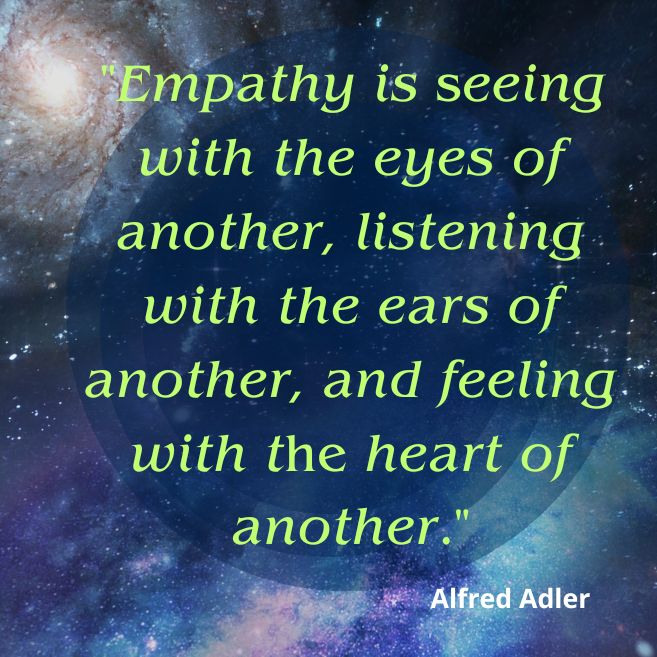
Explanation of the quote
Let’s start with this amazing quote that sums up what empathy is all about. “Empathy is seeing with the eyes of another, listening with the ears of another, and feeling with the heart of another.” This quote shows us how empathy can enrich our lives and make us more connected to others.
When we teach empathy to kids, we are helping them to go beyond their own bubble and really bond with others. It means getting to know someone else’s thoughts, feelings, and views. By looking at the world through someone else’s eyes, kids broaden their horizons and learn to value the variety of human experiences.
There are many ways to teach empathy to kids. One way is to tell stories that show different characters’ emotions and struggles. This can help kids practice empathy in a fun and creative way. Another way is to do role-playing games that let kids try out different roles and situations. This can help kids understand different points of view better. By using these methods, we give kids a chance to grow their empathy skills and bring out their caring side.
Teachers have a big part in teaching empathy in school. Empathy quotes for teachers can be a great source of motivation and inspiration for them. By adding empathy-building activities and talks to their lessons, teachers can make a difference in their students’ lives. They can create a culture of empathy and kindness in the classroom that spreads to the rest of the world.
Let’s continue our exploration of empathy and discover more powerful quotes that will further deepen our understanding of its transformative power.
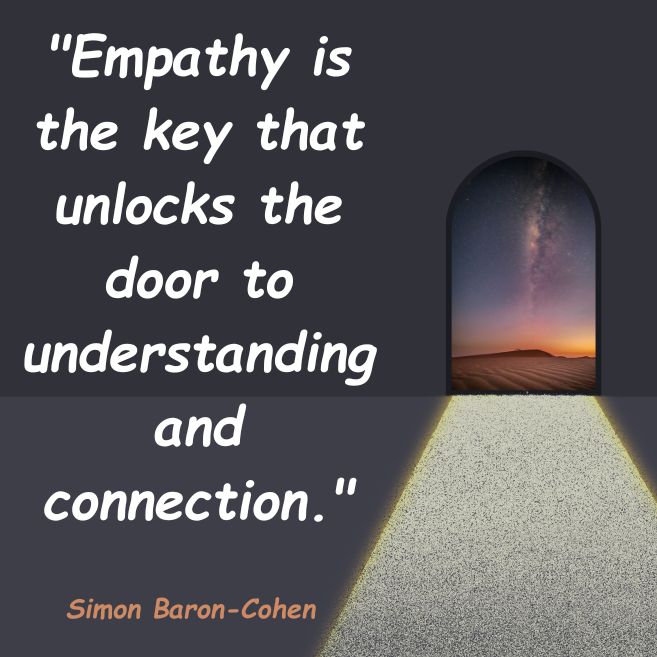
Empathy is the key that unlocks the door to understanding and connection – Simon Baron-Cohen
Explanation of the quote
These profound words beautifully capture the transformative power of empathy in our relationships and interactions.
Empathy serves as a vital key, allowing us to forge deeper connections with others. It enables us to truly understand and resonate with their experiences, emotions, and perspectives. When we approach others with empathy, we open ourselves up to a world of shared understanding and compassion.
Teaching empathy to children is an essential task, as it equips them with this valuable key to understanding and connection. By nurturing empathy in kids, we empower them to navigate relationships with greater sensitivity and kindness. They learn to listen attentively, validate others’ emotions, and offer support and comfort when needed.
Incorporating empathy-building activities into children’s lives further enhances their empathetic abilities. Engaging in community service projects, participating in group discussions about diverse perspectives, and encouraging acts of kindness all contribute to the development of empathy in children. Through these activities, children learn to extend their compassion beyond their immediate circles, fostering a sense of responsibility and empathy for the wider world.
As educators and parents, we play a crucial role in inspiring empathy in children. Empathy quotes for kids can serve as gentle reminders of the importance of understanding and connection. By sharing and discussing these quotes, we encourage children to embrace empathy as a guiding principle in their interactions with others, creating a more compassionate and harmonious society.
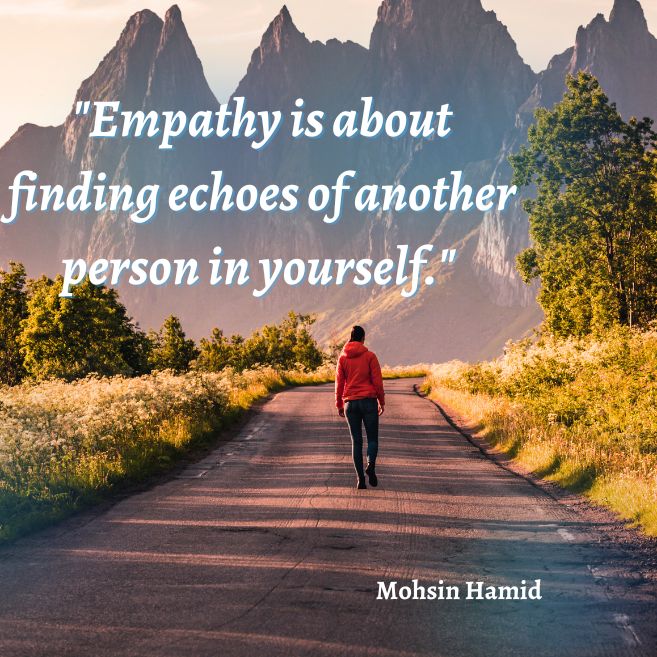
Explanation of the quote
These insightful words remind us that empathy involves recognizing and resonating with the experiences, emotions, and humanity of others.
When we practice empathy, we strive to understand others by finding common ground and shared experiences. It is through this process of finding echoes of another person within ourselves that we truly connect on a deep and meaningful level.
Teaching empathy to children is a way of fostering this connection and understanding. By encouraging children to reflect on their own experiences and emotions, we can help them develop the capacity to relate to others. Through discussions and activities that highlight similarities and shared emotions, children learn to find those echoes of another person within themselves, cultivating empathy in the process.
Engaging in literature, arts, and storytelling provides powerful opportunities for children to explore empathy. They can immerse themselves in narratives that present diverse perspectives, fostering empathy and understanding for characters with different backgrounds and experiences. By actively engaging with these stories, children learn to see themselves in others and recognize the shared humanity that connects us all.
Empathy quotes for children serve as gentle reminders of the importance of finding those echoes within ourselves. By introducing these quotes and facilitating discussions around them, we encourage children to develop empathy as a core value, enriching their relationships and their lives.
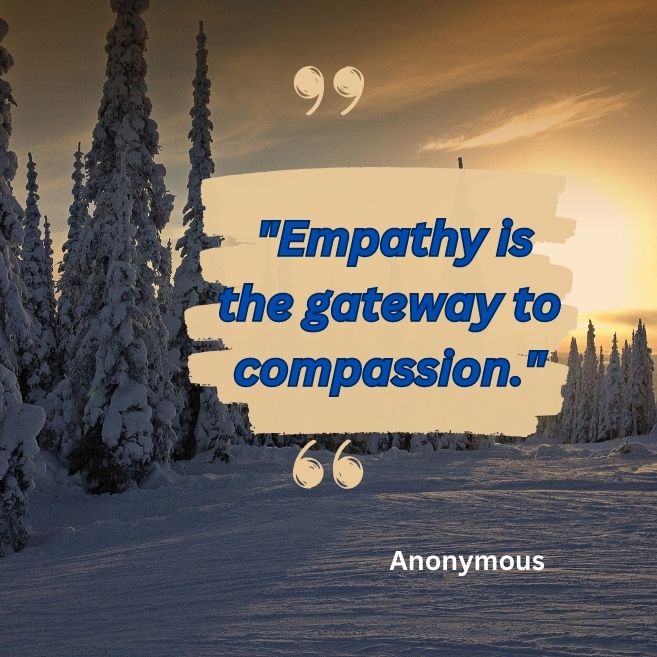
Explanation of the quote
These simple yet profound words capture the essence of how empathy paves the way for cultivating compassion in ourselves and others.
Empathy serves as the starting point, allowing us to understand and connect with the experiences and emotions of others. It opens our hearts and minds, creating a pathway towards compassion. When we empathize with someone, we step into their shoes, experiencing their joys, sorrows, and struggles. This shared understanding forms the foundation for genuine compassion.
Teaching empathy to children is crucial in nurturing their capacity for compassion. By helping them develop empathy, we empower them to recognize the suffering of others and respond with kindness and support. Through empathy-building activities and discussions, children learn to extend empathy into compassionate action.
Compassion involves not only understanding others’ experiences but also taking steps to alleviate their suffering. By fostering empathy in children, we plant the seeds of compassion that can grow into a lifelong commitment to making a positive difference in the world.
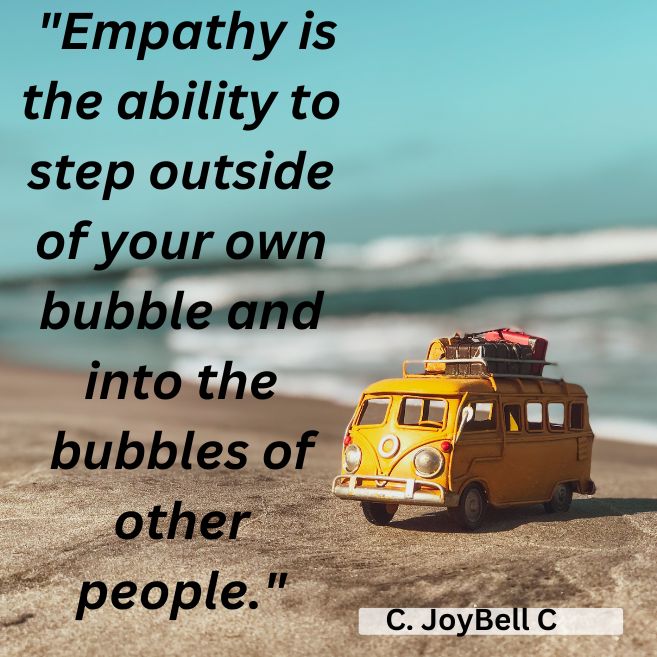
Explanation of the quote
These words beautifully capture the essence of empathy as a transformative power that enables us to transcend our own perspectives and truly understand others.
Empathy invites us to expand our horizons and embrace the experiences and realities of others. It encourages us to step outside the comfort of our own bubble and enter into the diverse and unique bubbles of other individuals. Through empathy, we gain a deeper understanding of their thoughts, feelings, and challenges.
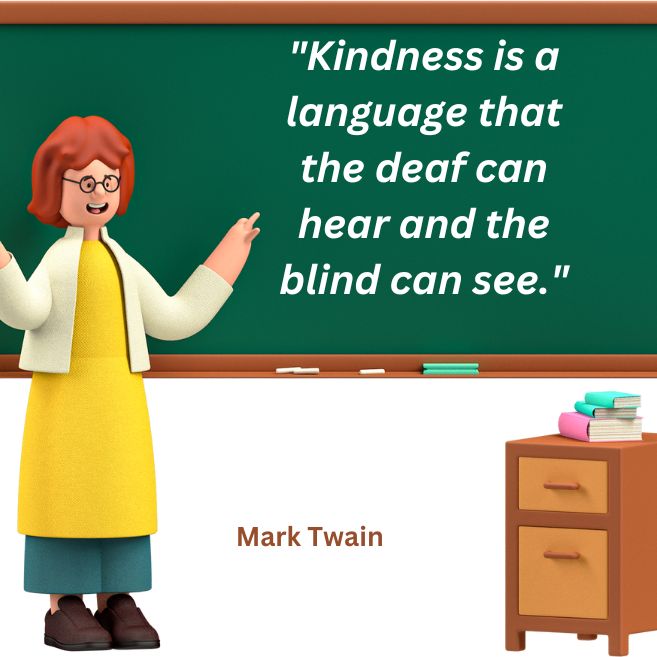
Explanation of the quote
These inspirational phrases serve as a reminder that kindness knows no bounds and touches the very core of our humanity.
In its essence, kindness is a universal language that goes beyond words and actions. It is a language understood by all, regardless of their abilities or limitations. Just as the deaf can perceive kindness through heartfelt gestures and the blind can sense it through the genuine warmth that radiates from others, kindness has the power to touch lives and create connections.
Teaching children about kindness and empathy allows them to learn this universal language. By nurturing their capacity for empathy, we equip them with the tools to express kindness in various forms. Through stories, role-playing activities, and discussions, children can develop an understanding of the impact their words and actions have on others and cultivate a compassionate mindset.
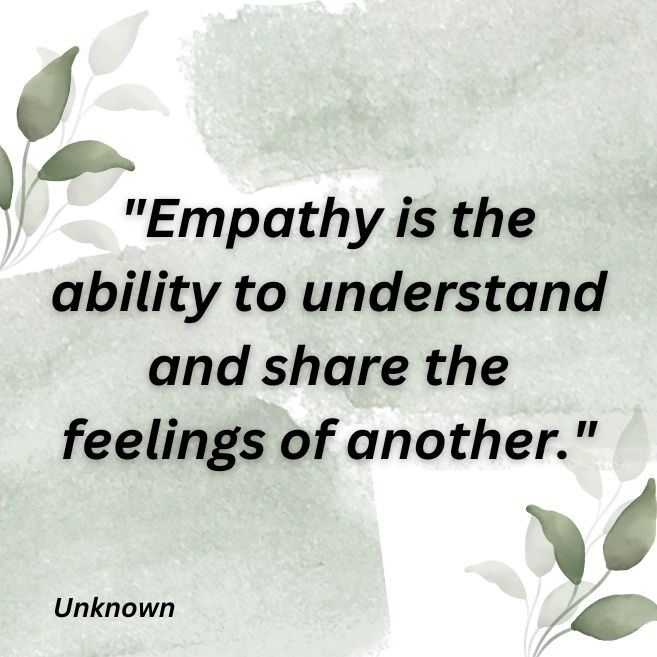
Explanation of the quote
Empathy goes beyond sympathy or pity; it involves truly putting ourselves in someone else’s shoes and experiencing their emotions as if they were our own. It requires active listening, genuine curiosity, and a willingness to be present with others’ joys, sorrows, and struggles.
Teaching empathy to children involves helping them develop this capacity for understanding and sharing the feelings of others. Through storytelling, role-playing, and engaging in empathy-building activities, we can encourage children to practice active listening, perspective-taking, and expressing compassion towards their peers.
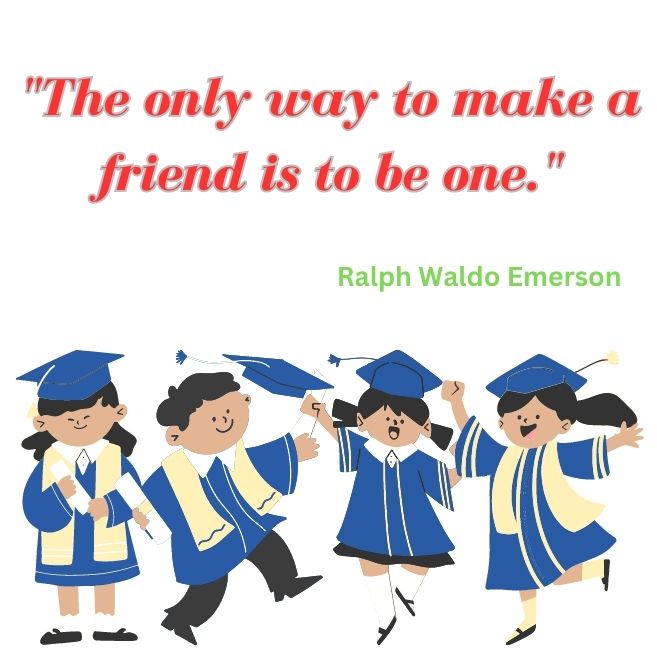
Explanation of the quote
These words highlight the reciprocity of empathy and its role in fostering meaningful connections with others.
Empathy serves as the foundation for building friendships and creating a sense of belonging. It requires us to extend ourselves beyond our own needs and perspectives, and actively engage in understanding and supporting others. By embodying the qualities of a friend – kindness, compassion, and genuine interest – we open the door for authentic and deep connections to form.
Introducing empathy quotes for kids can serve as powerful reminders of the importance of being a friend and embodying empathy in their interactions. These quotes can spark meaningful conversations about the qualities of a good friend and inspire children to cultivate empathy in their relationships.
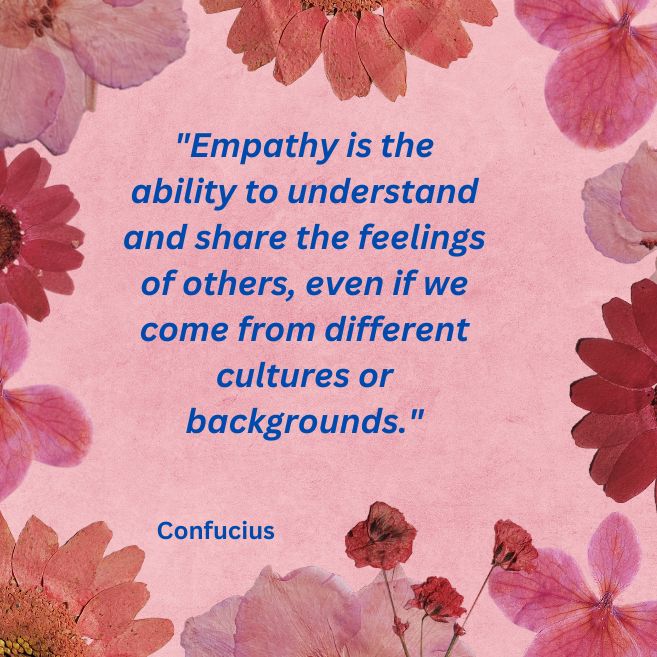
Explanation of the quote
In this quote we turn to the wisdom of Confucius, an influential philosopher from ancient China. He emphasized the importance of empathy, stating, “Empathy is the ability to understand and share the feelings of others, even if we come from different cultures or backgrounds.” These timeless words remind us that empathy transcends differences and enables us to bridge gaps in understanding.
Empathy serves as a universal language that connects individuals, allowing us to see beyond our own perspectives and embrace the experiences of others. It cultivates a sense of compassion, fostering harmonious relationships and promoting a more inclusive society.
Teaching children about empathy involves instilling in them the belief that understanding and sharing the feelings of others is not limited by cultural or background differences. Through exposure to diverse stories, discussions on empathy, and engagement in activities that promote cross-cultural understanding, children learn to appreciate and value the unique experiences of individuals from all walks of life.
Introducing empathy quotes for kids, such as this one by Confucius, can serve as powerful tools in nurturing empathy and fostering a global mindset in children. These quotes act as reminders of the universality of empathy and inspire children to embrace empathy as a fundamental value in their interactions with others.
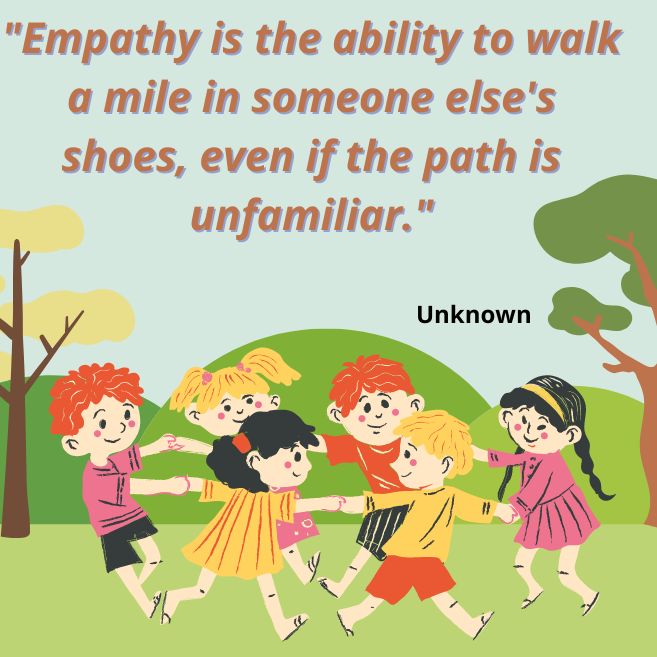
Explanation of the quote
Whoever said this knew what empathy was all about.
Empathy means stepping out of our own bubble and exploring the world of others, even when it’s very different from ours. It requires us to drop our judgments, challenge our assumptions, and feel what someone else feels.
We can teach kids empathy by helping them see things from other perspectives and celebrate diversity. We can do this by encouraging them to switch roles, have fun with different scenarios, and discover different traditions. This way, they learn to rely on empathy as a guide in their interactions.
Empathy quotes for kids, like this one, show them the value of empathy in their lives. These quotes teach them that empathy is not only for people who share our views, but also for people who have different views.
We have reached the end of our empathy journey, but we can always learn more.
Some simple empathy building strategies for kids that we can use
- Listening actively and attentively to what others are saying, without interrupting or judging them.
- Asking open-ended questions that show interest and curiosity, such as “How do you feel about that?” or “What do you think about that?”
- Expressing empathy verbally and nonverbally, such as saying “I’m sorry you’re going through this” or giving a hug or a smile.
- Showing respect and appreciation for the differences and similarities between ourselves and others, such as saying “I like how you see things differently” or “We have a lot in common”.
- Taking action to help others in need, such as offering support, advice, or assistance.
With my 15 plus years of experience teaching, one thing is clear to me: empathy and kindness are the keys to our kids’ success. As a teacher, I have witnessed how these qualities can make the world a better place, and I realize how vital it is to teach them to our kids early on.
Teaching empathy to kids is not only about being nice or polite. It’s about developing a heart that feels, understands, and accepts. The quotes we have explored in this journey have been like lamps in the dark, lighting up the path to a more empathetic and compassionate world.
I often share these quotes with my students in my classroom, and we have discussions that go beyond the usual topics. I see how a simple quote can inspire empathy in their hearts, making them eager to listen, help, and support each other. These moments of connection, of sharing someone else’s emotions, are the foundation of a better future.
But this is not the end. We have to keep teaching empathy and kindness to our kids as teachers, parents, and caregivers. We have to model compassion in our daily lives. We have to motivate them to do empathy-building activities, such as volunteering or chatting with people from different backgrounds.
Remember, each quote we have explored has something valuable to teach us. They show us that empathy is not a soft skill; it’s a superpower that enables our kids to make a difference in the lives of others and in the world. Let’s use these quotes as our mentors, and together, let’s build a future where kindness and empathy are the pillars of our world.
Further Reading
If you’re interested to go through academic publication on this topic, below is a review published in the American Psychological Association on the emergence of effortful control in childhood and its relations to constructs such as emotionality, compliance, delay of gratification, moral development, empathy, adjustment, social competence, and cognitive and academic performance.
- Effortful control: Relations with emotion regulation, adjustment, and socialization in childhood. (American Psychological Association)
